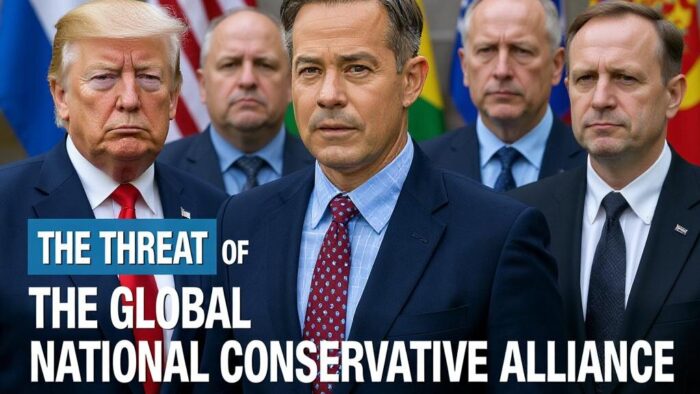European right-wing populist parties are adopting left-wing economic policies to broaden their appeal among working-class voters frustrated with government austerity measures. On 25 September 2025, The Wall Street Journal reported that parties from Sweden to Greece are abandoning traditional pro-market positions in favor of higher welfare benefits, subsidies, and protectionism while maintaining their anti-immigration stances. The article begins:
Right-wing populists have a new strategy to woo European voters frustrated with cash-strapped governments: Veer left. From Sweden to Greece and Austria, parties that for years favored a small state, low taxes, free trade and deregulation are now calling for higher welfare benefits, subsidies and protectionism—often alongside pro-market positions. The shape-shifting message has affected the coherence of their agendas but boosted their appeal, pollsters said. It has been a particularly potent strategy when empty state coffers and shaky parliamentary majorities are making it harder for establishment parties to spend more on programs that are popular with voters. “It is a widespread phenomenon,” said Gilles Ivaldi, professor of political science at Sciences-Po in Paris. “Many of these parties have drifted over time. They haven’t switched to the left, but they have enlarged their economic offering to incorporate left-wing measures.”
Read more: https://www.wsj.com/world/europe/europe-populist-right-wing-left-economics-eb7d3f9f [paywall]
Key Points
- Germany’s AfD attracted 33% of blue-collar voters in European Parliament elections, more than any other party.
- Reform UK pledged to raise state spending by £53 billion annually, while cutting taxes, which is a contradiction.
- France’s National Rally supports a lower retirement age and welfare increases alongside traditional right-wing positions.
- Parties practice “welfare chauvinism” by supporting generous benefits for citizens while excluding migrants.
How the Global National Conservative Alliance Transforms Economic Policy Through Nationalism
The Global National Conservative Alliance represents a fundamental shift away from Reagan-era free markets toward nationalist protectionist policies that prioritize national sovereignty over global economic integration. This coalition promotes economic nationalism through protectionist policies that favor domestic industries while rejecting traditional conservative support for international trade agreements. Hungary under Viktor Orbán exemplifies this approach through comprehensive media controls and constitutional reforms that have transformed the country’s political economy since 2010. The alliance operates through events like CPAC conferences that showcase coordination between European far-right leaders and American conservatives in promoting shared ideological frameworks.
Donald Trump’s administration has implemented this economic nationalism through protectionist trade policies and stringent immigration measures that mark a clear departure from traditional conservative economics. The movement emphasizes national sovereignty, cultural identity, and opposition to global institutions as core principles that guide economic decision-making. While Putin initially sought to lead this alliance, Hungary has emerged as the central bridge between European and American conservatives following Russia’s diminished role due to the war in Ukraine. The GNCA continues expanding its influence through many of Trump’s appointees attending National Conservatism conferences that strengthen transnational ties and advance shared policy agendas.
External References:
- Ambassador Jamieson Greer’s Remarks at the 2025 National Conservatism Conference
- How Orbán won? Neoliberal disenchantment and the grand strategy of financial nationalism
- National conservatism is the new paradigm of conservative politics
Disclaimer
The Global Influence Operations Report (GIOR) employs AI throughout the posting process, including generating summaries of news items, the introduction, key points, and often the “context” section. We recommend verifying all information before use. Additionally, images are AI-generated and intended solely for illustrative purposes. While they represent the events or individuals discussed, they should not be interpreted as real-world photography.









